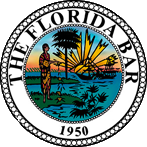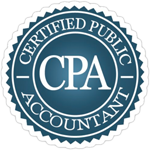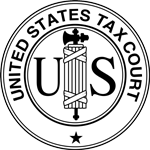- Free Consultation: (772) 418-0949 Tap Here to Call Us
Important Information About IRS Tax Levies

A levy is a legal seizure of your property to satisfy a tax debt. Levies are different from liens. A lien is a legal claim against property to secure payment of the tax debt, while a levy takes the property to satisfy the tax debt. The Internal Revenue Code authorizes levies to collect delinquent tax. Any property or right to property that belongs to the taxpayer or on which a Federal tax lien can be levied unless the IRC exempts the property from levy.
The IRS will usually levy a taxpayer only after these four requirements are met:
- The IRS assessed the tax and sent you a Notice and Demand for Payment (a tax bill);
- You neglected or refused to pay the tax; and
- The IRS sent you a Final Notice of Intent to Levy and Notice of Your Right to A Hearing(levy notice) at least 30 days before the levy. The IRS may give you this notice in person, leave it at your home or your usual place of business, or send it to your last known address by certified or registered mail, return receipt requested. Please note: if the IRS levies your state tax refund, you may receive a Notice of Levy on Your State Tax Refund, Notice of Your Right to Hearing after the levy.
- The IRS sent you an advance notification of Third-Party Contact notifying you that the IRS may contact third parties to determine or collect your tax liability.
If you do not pay your taxes (or make arrangements to settle your debt), and the IRS determines that a levy is the following appropriate action, the IRS may levy any property or right to property you own or have an interest in. For instance, the IRS could levy property that is yours but is held by someone else (such as your wages, retirement accounts, dividends, bank accounts, licenses, rental income, accounts receivables, the cash loan value of your life insurance, or commissions). Or the IRS could seize and sell the property you hold (such as your car, boat, or house).
How Do I Get a Levy Released?
Contact the IRS immediately to resolve your tax liability and request a levy release. The IRS can also release a levy if it determines that the levy is causing an immediate economic hardship. You may appeal this decision if the IRS denies your request to release the levy. You may appeal before or after the IRS places a levy on your wages, bank account, or other property. After the levy proceeds have been sent to the IRS, you may file a claim to have them returned to you. You may also appeal the denial by the IRS of your request to have levied property returned to you.
The IRS is required to release a levy if it determines that:

- You paid the amount you owe,
- The period for collection ended before the levy was issued,
- Removing the levy will help you pay your taxes,
- You enter into an Installment Agreement, and the terms of the agreement don’t allow for the levy to continue,
- The levy creates an economic hardship, meaning the IRS has determined the levy prevents you from meeting basic, reasonable living expenses, or
- The property’s value is more than the amount owed, and releasing the levy will not hinder our ability to collect the amount owed.
Please note: Releasing a levy does not mean you don’t have to pay the balance due. You must still make arrangements with the IRS to resolve your tax debt, or a levy may be reissued.

You may appeal any IRS collection actions to the IRS Independent Office of Appeals(Appeals). Appeals are separate from and independent of the IRS Collection office that initiated the collection action. Appeals ensure and protect its independence by adhering to a strict policy prohibiting certain ex-parte communications with the IRS Collection office or other IRS offices, such as discussions regarding the strengths or weaknesses of your case. Let the tax attorney-CPA-EA, Will Harmon of Harmon Tax Resolution, LLC help you determine your best options. Having a multi-disciplined Attorney-CertifiedPublic Accountant-Enrolled Agent will ensure that all elements of your situation will be considered from different perspectives ensuring that nothing gets overlooked. He can help you resolve this issue immediately so you can focus on the more essential things in life.
Let us help you find a solution to your tax problem. Call Harmon Tax Resolution, LLC today at 772-418-0949 or complete our online form to request a free consultation with a knowledgeable multi-licensed tax attorney-CPA-Enrolled Agent.











